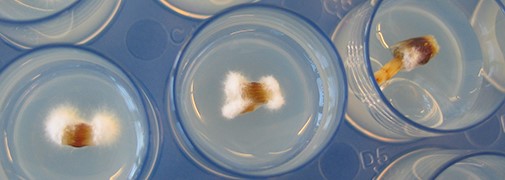BestPass: Harnessing grasses for future challenges using endophytes
Are you having trouble with grubs eating your lawn or perhaps leather jackets eating your forage? DLFs endophyte containing grasses are now part of a new European project, in which scientists investigate the benefits of endophytes
What are endophytes?
They are small and invisible to the naked eye. They seldom live a life on their own and are very dependent upon their host plants. They are called endophytes and in symbiosis with plants, they make a tremendous contribution to insect resistance as well as stress tolerance. However, being part of a complex biological system, these endophytes are highly affected by environmental cues, which sometimes limits their practical use. How can we stabilize their presence and contribution to their host plant? How do we optimize their performance? How can we further utilize and spike the benefits of mutually induced processes?

Large scale EU research project focuses on endophytes
These questions and many more will be at the center of a major EU research project called BestPass. A great team of 15 PhD students will spearhead the project, which comprises twelve industrial and university partners. One of the PhD students will be based at DLF Research Station, Denmark, and this part of the project will focus on characterizing multiple grass endophyte strains for the presence of alkaloids, which may provide insect resistance in the roots. In extension of this analysis, the grass-endophyte symbiotic relationship will also be characterized at the genetic and molecular level together with scientists at Aarhus University and another PhD student from the BestPass project. The aim is to identify endophyte strains, which have improved longevity, can accept a wider range of hosts, and has an alkaloid production, which is more independent of the environment. Therefore, the future may look a little brighter for all who struggle with turf- or forage damages caused by root eating insects.
“BestPass” is an acronym for a ‘Marie Skłodowska-Curie Innovative Training Network’, 2015-2020 with the title: “Boosting plant-endophyte stability, compatibility and Performance across scales”. Aside from grasses, it also focuses on tomatoes as one of the model crops for studying endophytic interactions.
